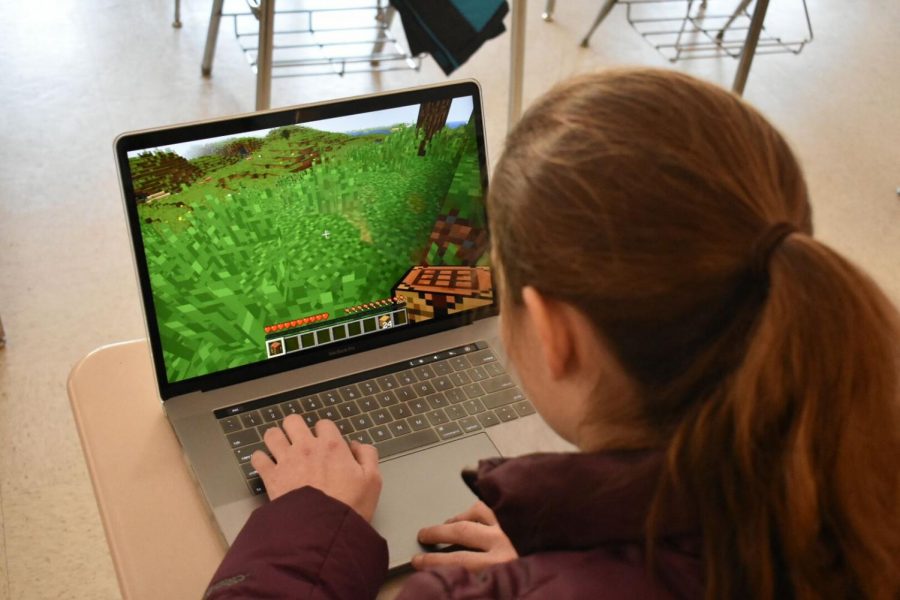Video Games: not just for kids
Video games can create stories worth remembering and convey lessons worth teaching. People shouldn’t be so quick to disregard the platform as one without nuance or emotion.
February 13, 2019
When thinking of great stories, the minds of some people jump to classic books like “The Catcher in the Rye,” “To Kill a Mockingbird” and “Slaughterhouse-Five,” arguing that they are the heart and soul of American culture; others think of more recent movies and TV shows such as “Breaking Bad” and “The Shape of Water.” Rarely, however, will anyone mention a video game.
While many think that novels, movies and television can create stories worth remembering and convey lessons worth teaching, few believe the same about video games. This is largely because many people’s first and only association with video games is mindless shooters like in “Fortnite” and “Call of Duty” or popular sports games like “FIFA” or “Madden”. This line of thinking does a disservice to one of the most powerful storytelling devices on the planet.
Video games can, in fact, tell an interesting and nuanced story. Take the indie video game “Papers, Please.” You’re a border guard in a fictional, dystopian, totalitarian post-Soviet republic. The entire game is checking for incorrect passports as you gradually receive more authoritarian orders. The player then must balance the safety of themselves and their family with committing immoral actions.
The fact that the player controls the protagonist is what makes games like “Papers, Please” unique. Its story gives unique insight into human nature that books or movies can’t provide because the player isn’t observing the protagonist become a willing cog in an oppressive machine; they themselves are making that difficult decision. As attached as people might become to fictional characters, no one has ever felt personally guilty for the actions of a character in a book or TV show. But as I sat at my computer, willingly stamping out the remnants of the revolution, I felt guilty. The ability in video games to interact with the characters and the plot gives the power to the player to tell stories and provide meaningful insight just as well—if not better—than other forms of media.
Even less “artsy” games are developing more nuanced, complex and downright compelling stories. The “Mass Effect” series, for example, is a trilogy of shooters—a genre long-ignored by culture-critics. Yet the series has created one of the most captivating space operas in all of fiction. The galaxy, as it always seems to be in Sci-Fi stories, is faced with destruction. You’re charged with organizing the disparate, fractured and apathetic races of the galaxy against a common, barely believed and seemingly unstoppable foe. Against you are the Reapers, a race of sentient machines that have purged the galaxy of life every 50,000 years for millennia.
Even in this seemingly basic plot, there is nuance that wouldn’t have existed in a similar game created 15 years ago. The seemingly inevitable advance of the Reapers, and the galaxys willful ignorance of their existence and threat, is a near perfect metaphor for climate change. And just like “Papers Please”, the player is able to create the story they want and suffer from the errors they make. Let an important ally die, for example, and suffer permanent distrust from the people of their homeland. Personal failings hit harder, and are more compelling, than reading about a fictional character doing the exact same thing.
In recent years, video games have matured. They’re no longer just a way for kids to spend a weekend. They’re now as much of an art form as anything else, and that should be recognized and celebrated.










